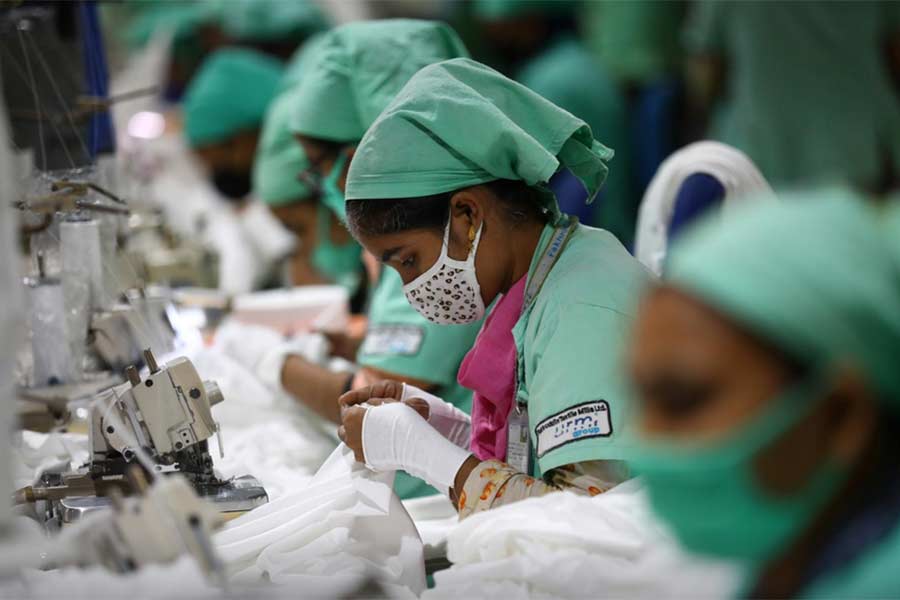
Published :
Updated :

By now it is clear that following LDC graduation in less than two years, Bangladesh is poised to face many fresh challenges due to its elevated country status. A good deal of these relates to preferential benefits in the realm of trade and commerce the country so long enjoyed and is still enjoying as an LDC. One such challenge is the new EU Generalised System of Preferences-plus (GSP-plus) scheme. The existing EU-GSP has been crucial in enabling Bangladesh to access the EU market by providing zero tariffs on exports. The revision of the scheme renamed GSP+ has added some strict prerequisites to qualify for preferential treatment under the scheme. GSP-plus is a remodelling of the duty preference structure that focuses on, among others, a number of International Labour Organisation (ILO) conventions related to labour standards.
GSP+ is a special incentive package for sustainable development and good governance of vulnerable developing countries, subject to their ratification of 27 international conventions on human rights, labour rights, environmental protection and climate change, and good governance. Vulnerable countries refer to those suffering from lack of export diversification and insufficient integration within the international trading system. GSP+ grants full removal of tariffs on over 66 per cent of EU tariff lines. Upholding the GSP+ status, especially for effective implementation and compliance with reporting obligations of the 27 conventions, is managed by EU monitoring. The EU engages in a dialogue with authorities and stakeholders in beneficiary countries and arranges frequent monitoring missions to GSP+ beneficiary countries.
The 'zero-duty access' to the EU under the existing GSP scheme will continue for three years after the official announcement of Bangladesh as a developing country in 2026. If the existing preferences are not available after the transition time, exports from Bangladesh would face 8.7 per cent duty on an average. As a result, it is estimated that shipments would drop at a rate of 5.7 per cent per year.
Given that continuation of tariff benefit under GSP-plus is tied to fulfilment of the conditions after LDC graduation, Bangladesh pledged to comply with the ILO conventions on labour and human rights along with few other issues. The key question now-how far has the country progressed in materialising its pledges, or is it in a position to fulfil the pledges within the timeframe?
The National Action Plan (NAP) formulated by the government to expedite progress on the matter is still not believed to have advanced satisfactorily. The NAP covers broadly nine issues, including framing Bangladesh Labour Law in compliance with the ILO standards on freedom of association and collective bargaining, and elimination of child labour in all its forms by 2025. According to an FE report, a high-level European Commission monitoring mission is expected to visit Bangladesh on November 12-16 to review the full status of progress made so far.
Meanwhile, the EU commission and the ILO are repeatedly urging upon the government about the importance of fulfilling the requirements in the NAP. The ILO has requested Bangladesh to bring about much-needed reforms to the Labour Law as a matter of priority through further consultations in line with the country's commitment. The latest request came after the Governing Body of the ILO concluded its 350th meeting at its headquarters in Geneva. At the session that took place between March 4 and 14, the member states made a series of decisions on living wages and initiatives to strengthen social justice. In line with the ILO's supervisory procedures, the members examined several country reports, including that of Venezuela, Nicaragua, and Bangladesh.
Speaking about Bangladesh, ILO said its governing body took note of the report on the progress made for implementation of the roadmap of actions and was mindful of its 2021-26 timeline for the labour sector reform, as well as of the results yet to be achieved. The Body noted the commitment made by Bangladesh to engage in further tripartite consultations to address the outstanding issues linked to Article 26, which deals with the ILO's complaint lodging procedure concerning alleged non-observance of conventions 81, 87 and 98. Convention 81 deals with the labour inspection at industrial units, Convention 87 refers to the freedom of association, and Convention 98 is related to collective bargaining rights.
The ILO also called on Bangladesh and the social partners to pursue their tripartite consultations in a constructive manner with a view to bringing about all necessary reforms as a matter of priority. The government communicated the process of amending the Bangladesh Labour Act, 2006 and the Bangladesh Labour Rules. It also cited the reforming of a tripartite standing committee to work on the amendment proposals concerning the Bangladesh Export Processing Zone (EPZ) Labour Act, 2019. The increase in the number of registered trade unions and active labour inspectors and the continuous recruitment of more inspectors as well as the enhancement of the capacity of the legal unit of the Department of Inspection for Factories and Establishments (DIFE) were mentioned in the report. The ILO governing body urged Bangladesh to report on further progress in the implementation of the roadmap to address all the outstanding issues concerning Article 26 at the 352nd Session, which will be held in November 2024.
In the light of the foregoing, Bangladesh has no choice but to take all necessary measures to qualify for the GSP+ in order to retain its export competitiveness in the EU market. In other words, continuation of tariff preference after LDC graduation is extremely vital for the sustenance of the country's export sector.
wasiahmed.bd@gmail.com


 For all latest news, follow The Financial Express Google News channel.
For all latest news, follow The Financial Express Google News channel.